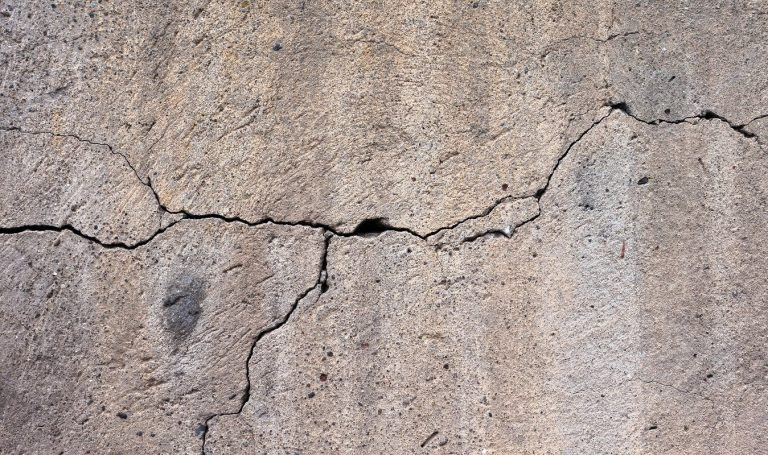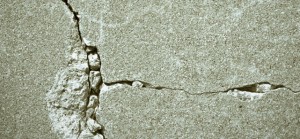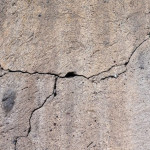How to Know If You Need a Foundation Inspection in Your Home
A solid and stable foundation is essential for the structural integrity of any home. Over time, various factors can affect the foundation, potentially leading to serious issues if left unaddressed. In this article, we will explore the signs that indicate the need for a foundation inspection. By understanding these warning signals and taking timely action, homeowners can ensure the long-term stability and safety of their homes.
Signs That Indicate the Need for a Foundation Inspection
1. Visible Cracks and Damage
One of the most common and easily identifiable signs that indicate the need for a foundation inspection is the presence of visible cracks and damage in and around your home foundation. These cracks can appear on walls, floors, ceilings, and even exterior surfaces. They may vary in size, shape, and severity, but they should never be ignored.
When inspecting your home for visible cracks, pay close attention to the following building codes:
Wall Cracks: Cracks in interior or exterior walls indicate that something may be wrong with the foundation. These cracks can be vertical, horizontal, or diagonal and can vary in width. Horizontal cracks are particularly concerning, as they can indicate foundation pressure from the surrounding soil.
Floor Cracks: Cracks in your floor, especially in concrete or tile flooring, can be a cause for concern. Look for cracks that appear in patterns, run across multiple tiles, or span a significant area. Cracks in the floor can be an indication of foundation settlement or shifting.
Ceiling Cracks: Cracks in the ceiling, particularly if they are accompanied by cracks in the walls, can suggest foundation movement. Ceiling cracks that are widening or spreading should be examined by a professional, as they may indicate a structural issue that requires immediate attention.
Exterior Cracks: Inspect the exterior of your home for any cracks in the foundation itself, as well as cracks in the brickwork or stucco. These cracks can indicate foundation settlement or the expansion and contraction of the soil around the house and foundation.
It’s important to note that not all cracks are related to foundation problems. Some cracks may be caused by normal settling of the home or changes in temperature and humidity. However, if you notice multiple or significant cracks, especially if they are accompanied by other warning signs, it’s crucial to have a professional and get a foundation inspection done.
During a foundation inspection, experts will evaluate the cracks, their location, size, and direction, and assess the overall condition of the foundation. They may use specialized equipment such as laser levels or moisture meters to gather accurate data and determine the extent of the foundation issues.
Remember, early detection of foundation problems can save you from costly repairs in the future. Ignoring visible cracks and damage can lead to further structural deterioration and compromise the safety of your home. If you notice any concerning cracks, it’s always better to be safe than sorry and consult with a qualified foundation specialist.
2. Uneven or Sagging Floors
Another significant sign that indicates the need for a home foundation inspection, is the presence of uneven or sagging floors. When you walk through your home, pay attention to any areas where the floor feels noticeably uneven or slopes. These irregularities can be indicators of underlying foundation issues that require professional assessment and intervention.
Here are some key points to consider regarding uneven or sagging floors:
Sloping or Uneven Surfaces: If you notice that your floors have a noticeable slope or unevenness when walking from one area to another, it is a clear indication of potential foundation problems. This can be observed by placing a small ball or level on the floor and observing its movement.
Doors and Windows Misaligned: Uneven floors can cause doors and windows to become misaligned. You may notice that doors stick or rub against the frame, or windows are difficult to open or close smoothly. These issues can be attributed to the shifting or settling of the foundation, leading to changes in the alignment of the structural elements.
Cracking in Tiles or Floor Coverings: Take a close look at the flooring materials, such as tiles or hardwood, for any signs of cracking or separation. Uneven floors can cause stress on the floor coverings, resulting in visible damage. Look for gaps between tiles, lifting of hardwood planks, or cracks in the grout lines.
Bouncy or Sagging Sensation: As you walk across the floor, pay attention to any areas that feel bouncy or sagging underfoot. This can be an indication of weakened or compromised support due to foundation issues. It’s particularly crucial to examine areas near load-bearing walls or areas where heavy furniture is placed.
Structural Movement: In severe cases, uneven or sagging floors can be accompanied by visible structural movement. You may observe cracks in the walls or ceilings that align with the slope or unevenness of the floors. These signs suggest that the foundation is shifting, settling, or experiencing structural instability.
Uneven or sagging floors are not only aesthetically displeasing but also pose safety risks and can lead to further damage if left unaddressed. If you notice any of these signs, it’s essential to consult a professional foundation inspector or licensed structural engineer to assess the extent of the problem.
During a foundation inspection, experts will use various methods, such as laser levels or floor elevation surveys, to measure the degree of floor unevenness and determine the underlying cause. They will also evaluate the condition of the foundation, assess the need for repairs, and recommend appropriate solutions.
Remember, addressing uneven or sagging floors early on can help prevent further structural damage and maintain the stability and safety of your home. Don’t hesitate to seek professional assistance if you suspect foundation issues related to your floors.
3. Plumbing Issues
Plumbing issues can sometimes be indicators of underlying structural or foundation engineer problems. The movement or shifting of a foundation can put stress on the plumbing system, leading to various plumbing issues within the home. If you notice recurring plumbing problems, it is essential to consider the possibility of foundation-related concerns and schedule a foundation inspection to identify the root cause.
Here are some key points to consider regarding plumbing issues and their potential connection to foundation problems:
Frequent Leaks: If you experience frequent leaks in your plumbing system, such as burst pipes or dripping faucets, it could be a sign of foundation issues. As the foundation moves or settles, it can cause pipes to shift, resulting in leaks. Pay attention to the location of the leaks and whether they occur in areas where the foundation is most likely to be affected, such as near exterior walls or in the basement.
Clogged Drains: Persistent clogs in your drains, even after attempts to clear them, may be related to foundation problems. Foundation movement can cause pipes to shift or become misaligned, leading to improper drainage and frequent clogs. If you notice that multiple drains in your home are consistently slow or frequently clogged, it’s worth investigating whether the foundation is playing a role.
Sewer Line Backups: Sewer line backups are a serious plumbing issue that can have various causes, including foundation problems. If you experience recurring sewer line backups, particularly in conjunction with other signs of foundation issues, such as visible cracks or uneven floors, it’s crucial to have a professional assess the condition of your foundation. Sewer line issues can be complex and require expert evaluation and repair.
Water Pressure Fluctuations: Fluctuating water pressure can be another indicator of potential foundation-related plumbing issues. If you notice significant changes in water pressure throughout your home, it may suggest that the shifting foundation is affecting the water supply lines. It’s important to rule out other common causes of water pressure fluctuations, such as issues with the municipal water supply or your plumbing fixtures, before considering foundation-related concerns.
Foundation Moisture: Foundation problems can lead to moisture issues in your home, including dampness or water intrusion. Excess moisture around the foundation can affect the plumbing system, leading to mold growth, corrosion, or deterioration of pipes. If you notice an increase in moisture levels or mold growth in your home, along with plumbing issues, it’s essential to investigate the possibility of foundation-related moisture problems.
When assessing plumbing issues related to the structural inspection of the foundation, it is advisable to consult both a professional plumber and a foundation specialist. A plumber can evaluate the plumbing system, identify specific issues, and perform necessary repairs. Meanwhile, a foundation specialist can assess the condition of the foundation and determine if any structural problems are contributing to the plumbing issues.
By addressing plumbing issues promptly and any underlying foundation problems, you can avoid further damage to your foundation-inspected plumbing system and maintain the integrity and functionality of your home. Regular maintenance of both the plumbing system and the foundation is crucial for preventing extensive repairs and ensuring the long-term stability of your property.
4. Crumbling or Deteriorating Foundation
A crumbling or deteriorating foundation is a serious issue that requires immediate attention. When the foundation of a home starts to degrade, it can lead to structural instability and compromise the overall safety and integrity of the building. If you observe signs of a crumbling or deteriorating foundation, it is crucial to address the problem promptly and consult with a professional foundation specialist.
Consider the following key points regarding a crumbling or deteriorating foundation:
Visible Cracks in the Foundation: Cracks in the foundation itself are a significant indicator of foundation deterioration. These cracks may start small but can widen and deepen over time. Pay attention to the size, location, and direction of the cracks. Horizontal or stepped cracks are particularly concerning, as they may indicate serious foundation movement or structural issues.
Flaking or Crumbling Concrete: Look for areas of the foundation where the concrete appears to be flaking, chipping, or crumbling. This is a clear sign of deterioration and can occur due to various factors, such as moisture intrusion, soil expansion, or inadequate construction materials. Crumbling concrete weakens the foundation’s structural integrity and requires immediate attention.
Bowing or Bulging Walls: As a foundation deteriorates, it may cause the walls of your home to bow or bulge. This is especially common in basements, other crawl spaces, or spaces where the foundation walls are exposed. Bowing or bulging walls are indications of significant foundation movement and can lead to severe structural damage if not addressed promptly.
Shifted or Settled Foundation Piers: Foundation piers provide support and stability to the foundation. If you notice that the foundation piers have shifted or settled unevenly, it is a clear sign of foundation deterioration. This can happen due to soil movement, inadequate foundation construction, or other external factors. A shifting or settling foundation requires immediate professional attention to prevent further foundation damage.
Water Intrusion and Moisture Issues: Excess moisture around the foundation can accelerate its deterioration. Look for signs of water intrusion, such as dampness, mold growth, or efflorescence (white powdery residue) on the foundation walls. Moisture-related issues can weaken the foundation materials, compromise their structural integrity, and lead to further deterioration.
When dealing with a crumbling or deteriorating foundation, it is essential to consult a qualified foundation specialist or structural engineer. They will assess the severity of the deterioration, identify the underlying causes, and recommend appropriate solutions.
Potential remedies for a crumbling or deteriorating foundation may include foundation repair techniques such as underpinning, helical piers, or carbon fiber reinforcement. These methods can stabilize the foundation, prevent further deterioration, and restore its structural integrity.
Ignoring a crumbling or deteriorating foundation can have severe consequences, including structural failure or collapse. Prompt action is necessary to address the problem and ensure the long-term stability and safety of your home.
Remember, the foundation is the backbone of your home’s structure, and any signs of deterioration should be taken seriously. Seek professional assistance to assess and address the issue promptly, preventing further damage and costly repairs in the future.
Ensuring a Solid Foundation: The Importance of Professional Inspections
Maintaining a strong and stable foundation is vital for the overall well-being of your home. By recognizing the warning signs and acting promptly, homeowners can prevent minor foundation issues from escalating into major structural problems. Regular foundation inspections can help identify and address any underlying problems before they cause significant damage. Remember, when it comes to your home’s foundation, early detection and professional intervention are key to ensuring a safe and stable living environment.
Contact the Professionals at A.M. Shield Waterproofing Corp. Today! (516) 294-8400








